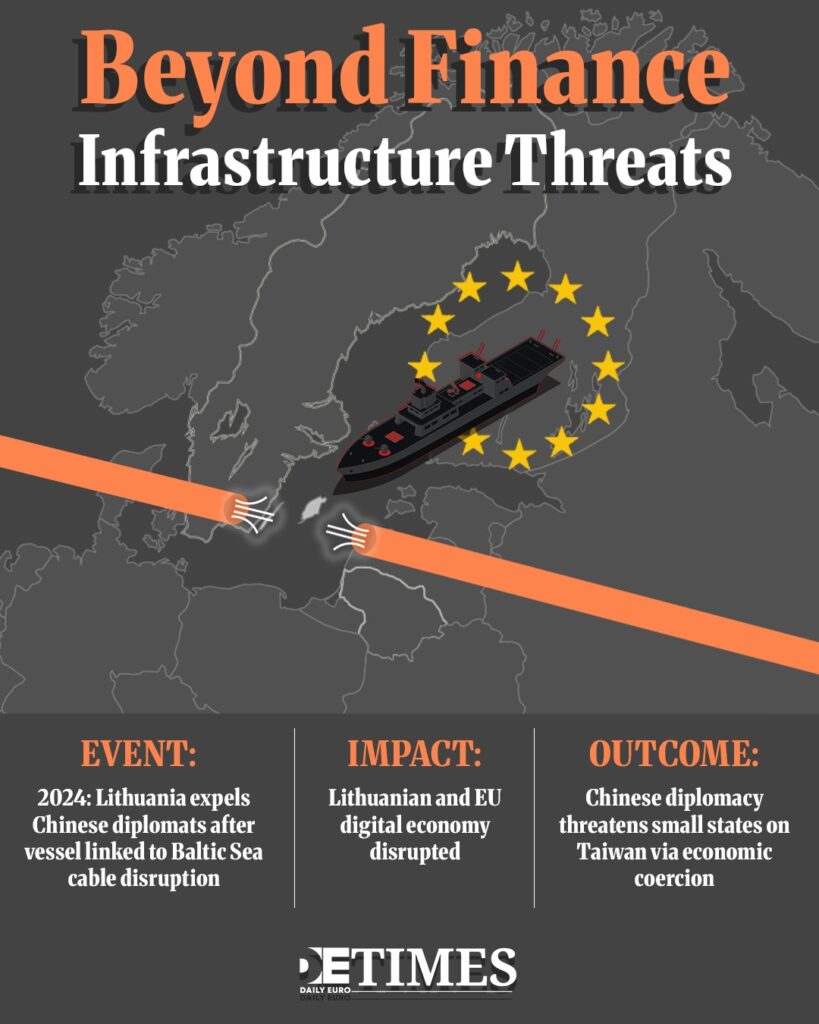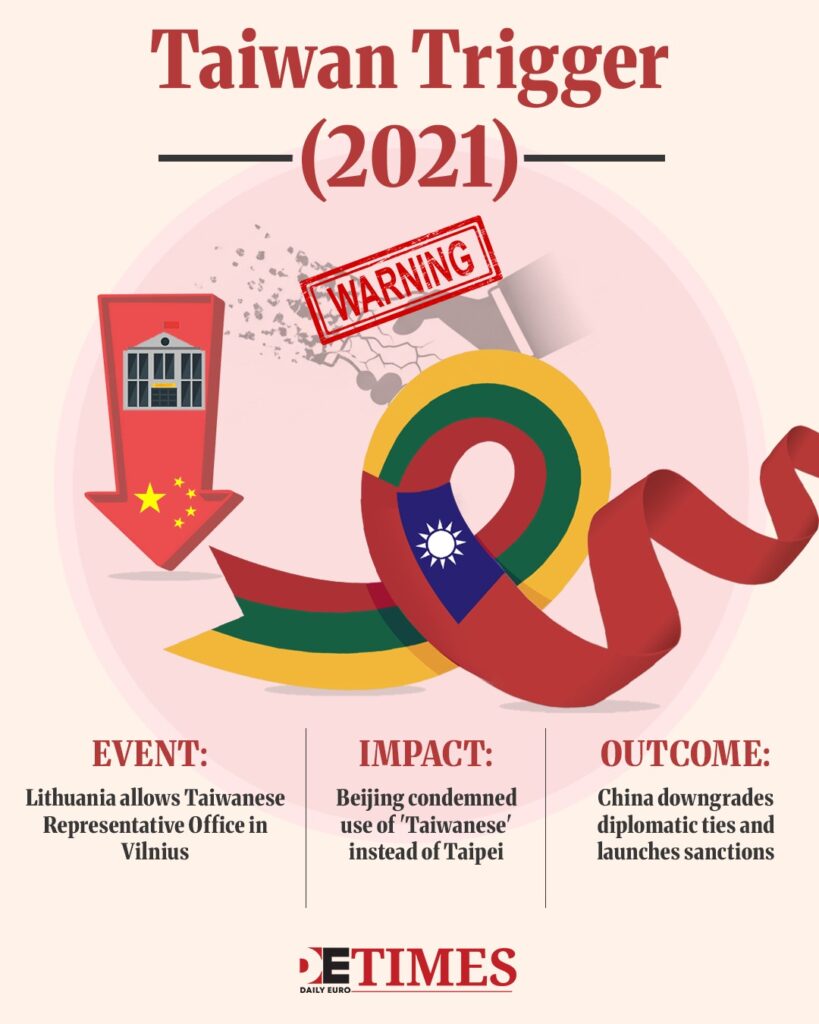On 13 August 2025, China’s Ministry of Commerce announced countermeasures against UAB Urbo Bankas and AB Mano Bankas. The move prohibits any Chinese individuals or organisations from conducting transactions with these Lithuanian banks.
Beijing framed this as retaliation for EU sanctions against two Chinese financial institutions over their links to Russia’s war in Ukraine.
Economic Coercion Takes Many Forms
The EU called Beijing’s measures wrong, noting that the Lithuanian banks do not work in China.
The mostly symbolic character of these sanctions misses their actual purpose. Beijing sends a clear message: states that support policies China dislikes will face economic consequences, regardless of logic.
These banking sanctions represent just the latest tool in Beijing’s economic warfare playbook. China has already targeted Lithuanian exports, blocked imports, and pressured multinational companies to cut ties with Lithuania.
Economic punishment has become Beijing’s preferred weapon against small states that defy its wishes.

Taiwan Dispute Sparked Original Conflict
Lithuania’s decision to allow Taiwan to open a representative office in Vilnius in November 2021 sparked outrage in Beijing.
The office used "Taiwanese" in its name rather than the typical diplomatic formulation. China downgraded its embassy in Lithuania to chargé d'affaires status in protest.
Beijing’s reaction revealed how economic coercion has replaced traditional diplomacy in China’s foreign policy toolkit.
Rather than engaging through normal diplomatic channels, China launched what experts describe as “systematic economic pressure.” The banking sanctions now add a financial dimension to this broader coercion campaign.

Infrastructure Attacks Heighten Economic Pressure
In 2024, Lithuania expelled Chinese diplomats following suspicions about a Chinese vessel.
The ship came under investigation concerning the severing of two undersea data cables. One cable connects Lithuania and Sweden beneath the Baltic Sea.
Such infrastructure carries huge economic value for Baltic states. Lithuania depends on digital connections for its growing tech sector. Physical threats to communications networks extend economic warfare beyond trade and finance into critical infrastructure.
European Unity Faces Growing Tests
Some European partners supported Lithuania publicly, while others preferred behind-the-scenes backing. The European Union first raised concerns with Chinese officials at their annual strategic dialogue in September 2021. Brussels continues defending Lithuania’s right to conduct foreign policy.
European unity gets tested when economic pressure mounts across multiple sectors. China’s banking sanctions target not just Lithuania but European resolve itself.
Beijing thinks that financial pain might split European positions and weaken collective responses to economic coercion.
Small States Find Creative Responses
Lithuania’s population barely exceeds 2.8 million people. The country’s GDP represents a fraction of China’s economic output. Yet Vilnius refuses to back down from its Taiwan policy despite escalating economic pressure.
Taiwan has stood firm in supporting Lithuania, particularly through agricultural trade and technology cooperation. When Beijing launched its coercion campaign, Taiwan took measures to boost bilateral economic ties.
Smaller states can find creative ways to support each other against economic warfare from larger powers.
Limits of Economic Warfare Emerge
China’s banking sanctions reveal both the reach and the limits of economic coercion as a foreign policy tool.
Beijing can target specific sectors and institutions across borders with relative ease. However, symbolic measures on banks without Chinese operations carry limited practical effect on Lithuania’s actual economy.
Sanctions do impose administrative burdens and reputational costs on Lithuanian financial institutions. Lithuanian banks must now navigate complex compliance requirements and potential business disruptions. Such friction serves Beijing’s purposes even without direct financial harm, adding costs to defying Chinese policy preferences.
Rather than yielding to escalating pressure, European states might consider deeper coordination on economic security policies.
Lithuania’s experience offers practical lessons about building resilience against targeted economic coercion campaigns. The Baltic state’s financial sector continues operating despite Beijing’s disapproval and systematic pressure.
How many more economic weapons will China deploy before recognising that financial coercion alone cannot change Lithuania’s foreign policy choices?
Keep up with Daily Euro Times for more updates!
Read also:
Quality Over Quantity: Switzerland Must Look East
Seal of Approval: EU Delists UAE from Financial Watchlist
U.S. Sanctions Derailed as China and Iran Go Full Steam Ahead






